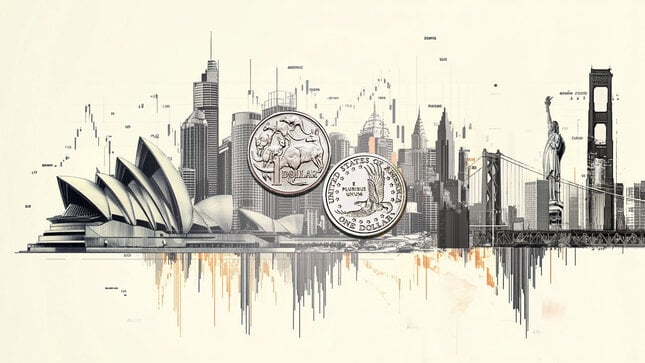Exchange rate is defined as the value of one currency for the purpose of converting into another. Whilst the is a simple idea to comprehend, its implications when it comes to business and international trade are humongous. In this article we will investigate the role foreign exchange rates play in the viability and operations of a business.
How does a change in the currency valuation of your home country affect your business? How does the valuation of the currency in a country you’re exporting / importing materials or products from affect your business? These questions will be answered in detail and you’ll get a good idea of how foreign exchange rates and the overall market health can influence the trajectory and profitability of your business.
Before doing so, it would be wise to take a look at the reasons affecting the value of a currency. Why are currencies so volatile? What are the core reasons behind their constant fluctuations?
Interest rates
The higher the interest rates within a country, the stronger the currency. Higher interest rates will naturally attract foreign investment, growing demand and value of the home country’s currency. High interest rates attracts money to flow into a country and therefore strengthen its value.
Economic Growth
This is a simple inference to make as a stronger economy will always be the backbone of a strong currency. A country with a strong and steady economic growth will normally see its central bank increase interest rates as a way of managing inflation. The impact of increasing interest rates was outlined on the section above this one.
These are some basic components affecting the behaviour of currency. The full list of elements is long and elaborate and probably the subject of another blog post. For now, let’s revert back to answering the question asked in the title.
Balance Sheet
The implications of dealing with foreign exchange rates can be huge for the CFO of a company. Loans, assets and liabilities must all adhere to the same financial language and the ever-changing nature of foreign exchange rates is not the most helpful thing. Financial statements undergo a lot of scrutiny and they are an essential building block for a company that wants to be taken seriously.
International Trade
This is the most clear-cut scenario showcasing how fluctuations in exchange rates can severely affect a business. Exporting goods overseas means that your cost of producing goods and the price of selling them will come in two different currencies. What this means is that your business is in for some serious profits or equally, some devastating losses.
Imagine you own a UK company where you import products from Europe. If the UK Sterling Pound to Euro rate increases, you will find yourself making more money without altering your prices. Using the same scenario, if a company exports products, their exports will become more expensive and unprofitable in the long run.
These principles do not just apply to businesses that import / export finished products. A lot of companies need to import raw materials to produce their products. This is a case where the entire business is influenced.
Fuel
The price of fuel is not just a concern for your monthly household budget. If a country is importing fuel from abroad, a shift in the market exchange rate can prove to be detrimental for the entire economy and therefore local businesses. If the local currency depreciates there will be an overall increase in the cost of transportation meaning that the transportation of goods will take an immediate hit.
Tourism
Tourism is a prime example of how currency depreciation affects business. Countries like Greece, Cyprus and Spain base a sizeable chunk of their economies on tourism. Once their currency depreciates, they immediately become a favourable destination for travellers since they can now get more value for their money. Exchanging their money to the home country’s currency will buy them better accommodation, food and overall leisure activities. Even though depreciation of a currency is generally seen as a bad sign for a country’s economy, there are indirect benefits to be derived by businesses from an increase in tourism.
Mergers and Acquisitions
Businesses are assets and just like every asset, they have a price. On periods where currency is depreciated, businesses are devalued and become optimal candidates for a merger or acquisition. International companies with a stronger currency are more likely to explore the option of buying or merging with a company whose currency is depreciated.
Ways to Safeguard Your Business From Exchange Rates Fluctuations
Leaving your business at the mercy of the exchange rate volatility is a dangerous game. There’s a multitude of reasons as to why exchange rates can shift. From politics and government policies to natural disasters and economic boycotts/embargoes, there’s a lot that goes into determining exchange rates. What do all of those factors have in common? The fact that you, as a business, have no real power or control over them.
Having said that, there are different ways you can resort to in order to protect your business from the unpredictability of exchange rates. Let’s investigate.
Fixed/Forward Contracts
Fixed contracts are exactly what it says on the tin. Contracts that shield your business activities from the unforeseeable nature of exchange rates. The contract outlines exact prices for imported / exported materials or finished products over a specific time period. This set of stipulations ensures that your business projects are immune to the ups and downs of exchange rates.
Buy in Bulk
This is obviously a strategy that can’t be employed by all businesses because it all depends on the kind of products / services your business deals with. By buying in bulk, you secure more units of a product than you actually need in order to make the purchase at an exchange rate that is favourable to you. Think of an airline company buying fuel for example. What makes business sense is to buy as much fuel as they can when the exchange rate suits them the best. If they buy based on a short term need-buy basis, they are exposing themselves to the unpredictability of exchange rates.
Payment platforms
Exchange rate vulnerability was one of the first conundrums that financial technology tried to resolve. The result of that effort? Payment platforms such TransferWise, WorldRemit and WorldRemit. These FinTech wonders essentially solve the issue of international business payments. By paying a small upfront fee, you can send money overseas using the mid-market exchange rate. Orders are executed within the same day in contrast to slower service by local banks and give you the stability you need to plan, forecast and not fret over exchange rate fluctuations.
For more useful information and educational content about trading, financial trends and market analysis, navigate to the EverFX website. The Newsroom section of the website is regularly updated with articles and blog posts that take a deep dive into the most interesting and valuable topics regarding the Forex industry.
Our products are traded on margin and carry a high level of risk and it is possible to lose all your capital. These products may not be suitable for everyone and you should ensure that you understand the risks involved.
Editors’ Picks

USD/JPY drops back below 157.00 on Japan's verbal intervention
USD/JPY has come under moderate selling pressure below 157.00 in the Asian session on Monday. The Japanese Yen lost ground to near 157.70 following Japan’s ruling Liberal Democratic Party's outright majority win in Sunday’s lower house election, opening the door to more fiscal stimulus by Prime Minister Sanae Takaichi. However, JPY buyers jumped back and dragged the pair southward on FX verbal intervention by Japan’s Finance Minister Katayama.

Gold eyes acceptance above $5,000, kicking off a big week
Gold is consolidating the latest uptick at around the $5,000 mark, with buyers gathering pace for a sustained uptrend as a critical week kicks off. All eyes remain on the delayed Nonfarm Payrolls and Consumer Price Index data from the United States due on Wednesday and Friday, respectively.

AUD/USD: Buyers eyes 0.7050 amid upbeat mood
AUD/USD builds on Friday's goodish rebound from sub-0.6900 levels and kicks off the new week on a positive note, with bulls awaiting a sustained move and acceptance above mid-0.7000s before placing fresh bets. The widening RBA-Fed divergence, along with the upbeat market mood, acts as a tailwind for the risk-sensitive Aussie amid some follow-through US Dollar selling for the second straight day.

Top Crypto Gainers: Aster, Decred, and Kaspa rise as selling pressure wanes
Altcoins such as Aster, Decred, and Kaspa are leading the broader cryptocurrency market recovery over the last 24 hours, as Bitcoin holds above $70,000 on Monday, up from the $60,000 dip on Thursday.

Weekly column: Saturn-Neptune and the end of the Dollar’s 15-year bull cycle
Tariffs are not only inflationary for a nation but also risk undermining the trust and credibility that go hand in hand with the responsibility of being the leading nation in the free world and controlling the world’s reserve currency.
RECOMMENDED LESSONS
Making money in forex is easy if you know how the bankers trade!
I’m often mystified in my educational forex articles why so many traders struggle to make consistent money out of forex trading. The answer has more to do with what they don’t know than what they do know. After working in investment banks for 20 years many of which were as a Chief trader its second knowledge how to extract cash out of the market.
5 Forex News Events You Need To Know
In the fast moving world of currency markets where huge moves can seemingly come from nowhere, it is extremely important for new traders to learn about the various economic indicators and forex news events and releases that shape the markets. Indeed, quickly getting a handle on which data to look out for, what it means, and how to trade it can see new traders quickly become far more profitable and sets up the road to long term success.
Top 10 Chart Patterns Every Trader Should Know
Chart patterns are one of the most effective trading tools for a trader. They are pure price-action, and form on the basis of underlying buying and selling pressure. Chart patterns have a proven track-record, and traders use them to identify continuation or reversal signals, to open positions and identify price targets.
7 Ways to Avoid Forex Scams
The forex industry is recently seeing more and more scams. Here are 7 ways to avoid losing your money in such scams: Forex scams are becoming frequent. Michael Greenberg reports on luxurious expenses, including a submarine bought from the money taken from forex traders. Here’s another report of a forex fraud. So, how can we avoid falling in such forex scams?
What Are the 10 Fatal Mistakes Traders Make
Trading is exciting. Trading is hard. Trading is extremely hard. Some say that it takes more than 10,000 hours to master. Others believe that trading is the way to quick riches. They might be both wrong. What is important to know that no matter how experienced you are, mistakes will be part of the trading process.
The challenge: Timing the market and trader psychology
Successful trading often comes down to timing – entering and exiting trades at the right moments. Yet timing the market is notoriously difficult, largely because human psychology can derail even the best plans. Two powerful emotions in particular – fear and greed – tend to drive trading decisions off course.

